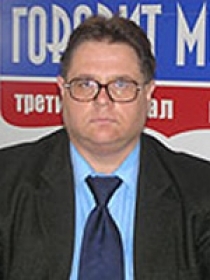Ru
|
Eng
Switzerland referendum hailed as token of bright future of nuclear energy industry in Europe
01.12.2016

Results of the latest referendum held in Switzerland to decide the future of the country’s nuclear power plants demonstrated that the world nuclear energy industry is going to grow larger, said Director General of the Russian state nuclear industry corporation Rosatom Alexei Likhachev. He believes that nuclear power plants will be built in many countries without a nuclear energy industry of their own. As many as 54.2% of the Switzerland citizens voted against the Green Party’s initiative to phase out the nuclear energy industry. The voter turnout reached 44%, which is on par with the average voter turnout during referendums in the country. The Green Party suggested shutting down nuclear power plants over the age of 45 and scrapping plans to build new power-generating units. The government and the parliament of Switzerland had spoken against the initiative before the referendum.
“The referendum in Switzerland confirms that European countries will develop their nuclear energy industry, they will work to expand the nuclear portion of their energy pie. It means that new power plants will be built as well as new power-generating units,” stated Alexei Likhachev.
Leonid Gusev, an expert of the analysis center of the Moscow State University of International Relations of the Russian Federation Ministry of Foreign Affairs, told media that the referendum in Switzerland proved that it is too early to bury the nuclear energy industry in Europe, BelTA has learned. Germany’s plans to stop using nuclear power plants are vigorously discussed in mass media. Against this background the plans to build or the ongoing construction of new nuclear power plants in the UK, Slovakia, Hungary, Finland, and France are hard to notice. Czechia has also noted it is going to build up its nuclear power plants. Nuclear energy accounts for about 16% of the electricity generated in Germany while the PR campaign against peaceful uses of nuclear energy is going strong. If we look at the official data of the World Nuclear Association, we will see that in 2013 German nuclear power plants produced 15.5% of the total amount of electricity generated in the country. In 2014 the figure even rose a bit to 15.8%.
If we throw into the mix the facts that nuclear power plants are very effective under basic workload (unlike the unstable operation of renewable energy sources), that nuclear power plants produce no CO2 to generate electricity — in other words, they don’t affect the climate — then the decision of the majority of Swiss citizens in favor of keeping the nuclear power plants running looks very pragmatic and sound.
In 2015 five reactors at four nuclear power plants in Switzerland produced 34% of the total amount of electricity the country needs. In addition to hydropower plants (59% of the energy basket) the nuclear power plants represent the main source of carbon-free energy in Switzerland. It would be impossible to throw away a third of the electricity the country needs just to curry favor with the Green Party. In essence Switzerland is one of the most environmentally-conscious countries in Europe and has decided in favor of the most environmentally-friendly source of energy — nuclear energy. The country has no readily available alternatives to the nuclear reactors. And the Swiss would have to pay more for electricity if it was imported.
ANALYTICS
30.08.2023
21.03.2023
30.08.2021
02.07.2021
23.06.2021
10.06.2021
04.06.2021
03.06.2021
20.05.2021
15.05.2021













